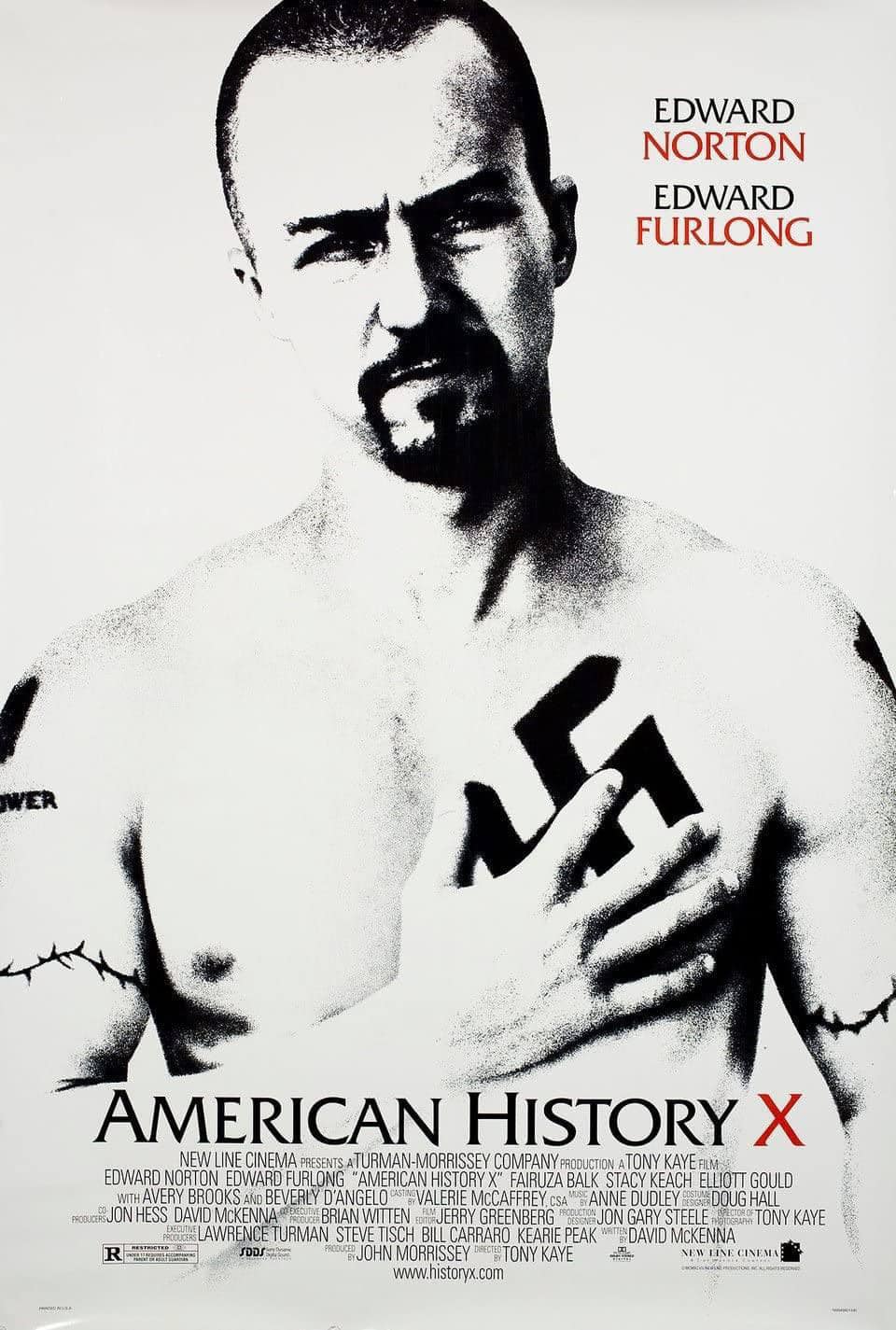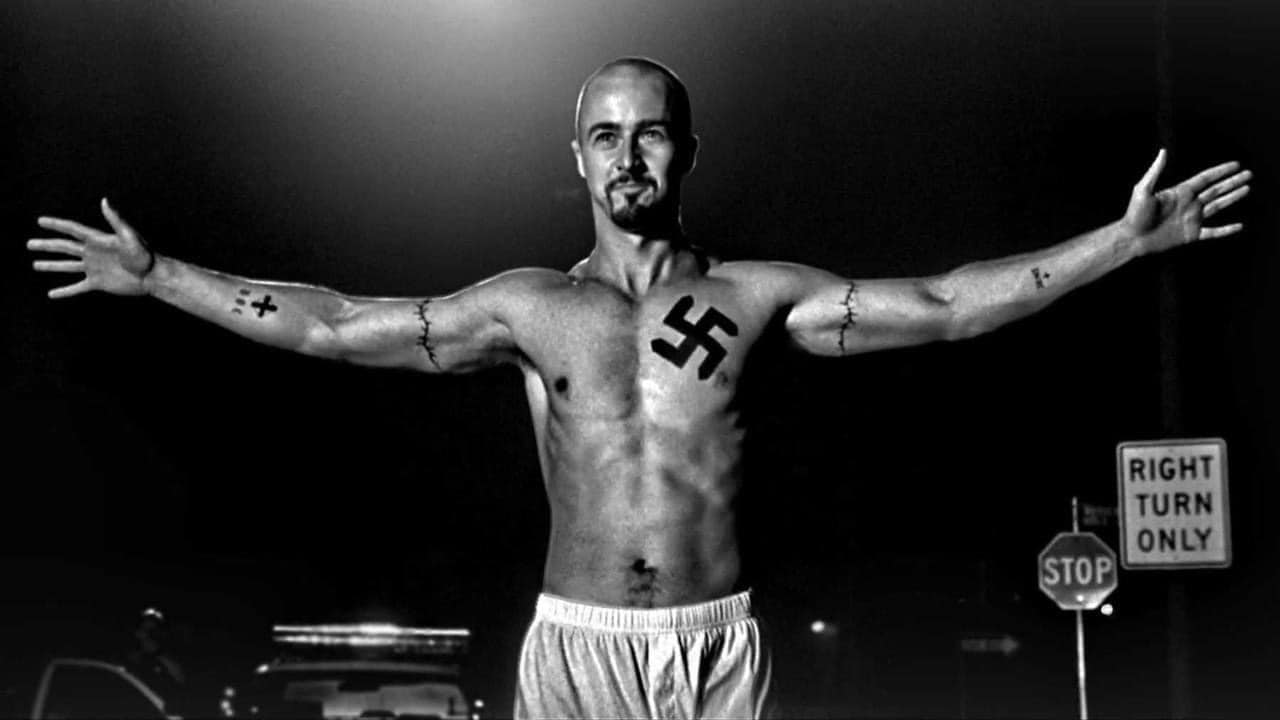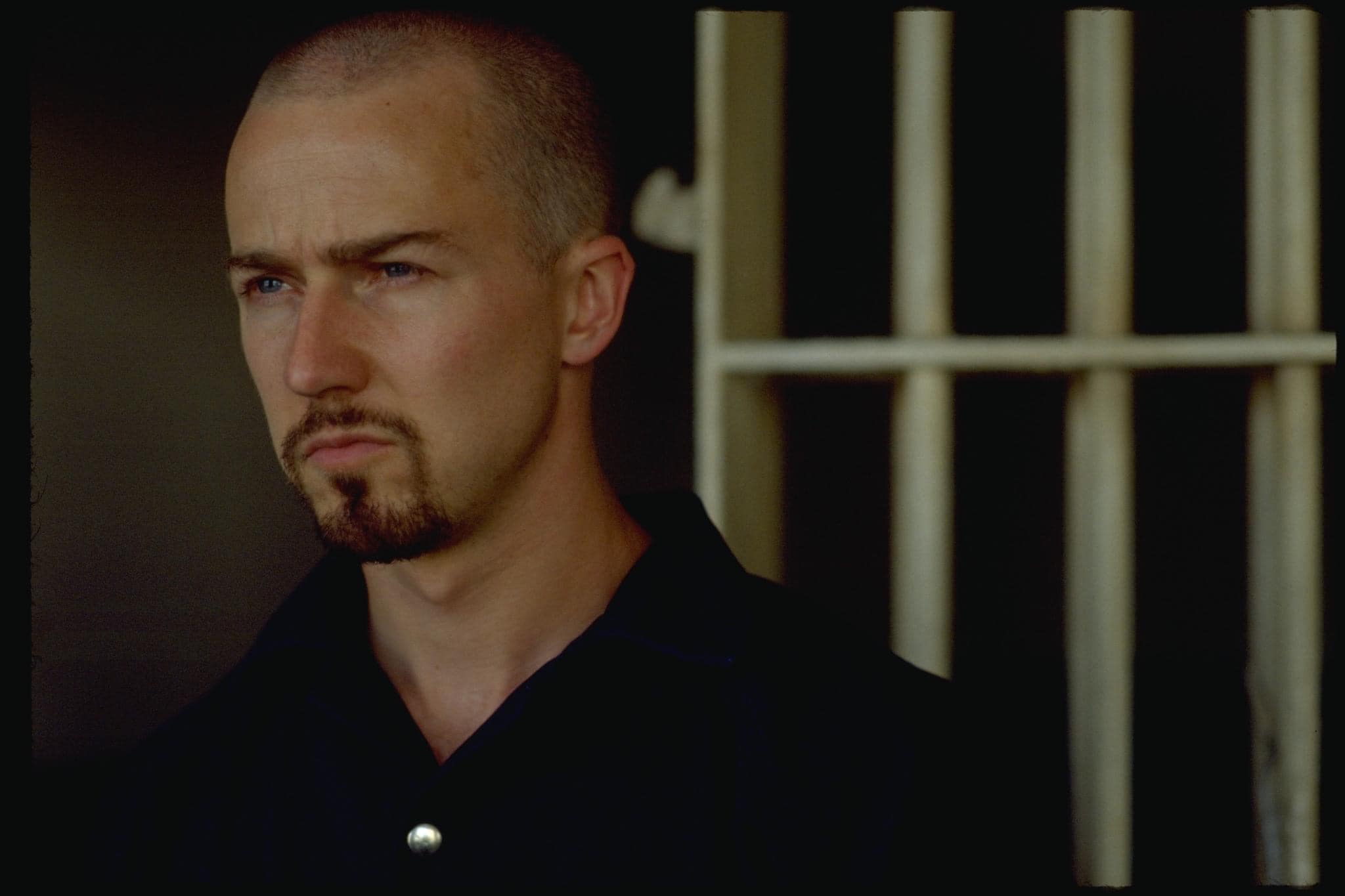American History X: A Tale of Hate, Redemption, and the Power of Change

American History X (1998), directed by Tony Kaye and written by David McKenna, is a gripping and thought-provoking drama that delves deep into the themes of racism, hate, and the possibility of redemption. With a powerhouse performance from Edward Norton, who earned an Academy Award nomination for his portrayal of Derek Vinyard, the film remains a haunting exploration of the impact of hatred on individuals, families, and communities.
Plot Overview
The film centers on Derek Vinyard, a former neo-Nazi skinhead who is released from prison after serving time for committing a brutal hate crime. Derek’s transformation from a fervent white supremacist to someone who renounces his past is the core of the film. His younger brother, Danny (played by Edward Furlong), idolizes Derek and is on the verge of falling into the same life of violence and hatred.
The story is told through a series of flashbacks interspersed with present-day events. The flashbacks highlight Derek’s radicalization, largely influenced by his father’s subtle racism and later by white supremacist leader Cameron Alexander (Stacy Keach). After his father’s death, Derek’s hatred grows, leading him to commit the crime that sends him to prison.
Suggested videos for you:
Suggested videos for you:
While in prison, Derek experiences a transformative journey. The harsh realities of prison life, including betrayal by his fellow white supremacists and an unlikely friendship with a Black inmate, make him question the very ideology that once defined his existence. Upon his release, Derek’s primary mission is to prevent Danny from repeating his mistakes and to steer him away from the destructive path of hate.
Themes of Hate and Racism
At its core, American History X is a film about the destructive nature of hatred and the poisonous influence of racism. Through Derek’s character, the film illustrates how hate can be learned, fueled by anger, and used to justify violent, inhumane acts. It also sheds light on how racism often emerges from ignorance and fear, exacerbated by personal tragedies and societal frustrations.
The film doesn’t shy away from depicting the brutal realities of hate crimes. The infamous curb-stomping scene is one of the most disturbing moments in cinema, emphasizing the extreme violence that racism can provoke. Yet, American History X also shows how hate can be unlearned. Derek’s journey of self-reflection and change demonstrates that even the most deeply entrenched beliefs can be dismantled.
Redemption and Change

While the film presents a stark portrayal of racism and violence, it also offers a glimmer of hope through the theme of redemption. Derek’s transformation, though painful and difficult, is proof that change is possible. His time in prison forces him to confront the consequences of his actions and the lies he has believed for so long. The film challenges the notion that individuals are defined solely by their past mistakes and opens the possibility of redemption for those who seek it.
Derek’s attempts to save his brother from the same fate highlight the film’s message that hate is a cycle that can be broken. Danny, who has been drawn into the neo-Nazi movement through Derek’s influence, slowly begins to reconsider his own beliefs as he watches his brother’s efforts to change.
Family and Influence
Family dynamics play a critical role in American History X. The film explores how Derek’s racist ideology deeply affects his relationship with his family, particularly with his mother, Doris (Beverly D’Angelo), and his brother, Danny. The death of Derek’s father serves as a turning point in Derek’s radicalization, as his father’s casual racism and untimely death in a gang-related incident fuel Derek’s growing hatred.
Suggested videos for you:
@licktowing11 Terminator- Dark Fate 2019. #movie #movieclips #highlights #moviehighlights #terminator #darkfate #actionmovie2024
Suggested videos for you:
@lovrstify99 Avengers Age of Ultron (2015) – Only Action. #movie #movieclips #highlights #moviehighlights #avengers
Derek’s relationship with his younger brother is central to the narrative. Danny’s admiration for Derek leads him down a dangerous path, but it is also Derek’s eventual redemption that provides a chance for Danny to escape the same fate. The film illustrates how younger generations can be influenced by the actions and beliefs of their elders, whether for good or bad.
Powerful Performances
Edward Norton delivers a career-defining performance as Derek Vinyard, showcasing the character’s evolution from a violent, hate-fueled skinhead to a man seeking redemption. His portrayal is raw and intense, conveying both the terrifying charisma of the neo-Nazi leader and the vulnerability of a man seeking to right his wrongs. Norton’s ability to transition between these two facets of the character earned him widespread critical acclaim and an Academy Award nomination for Best Actor.

Edward Furlong’s portrayal of Danny is equally compelling, capturing the confusion and vulnerability of a young man caught between idolizing his brother and discovering his own identity. The supporting cast, including Beverly D’Angelo as Derek and Danny’s mother and Stacy Keach as the manipulative white supremacist leader, round out the film with strong performances.
Cinematic Style
Tony Kaye’s direction brings a stark, gritty realism to American History X. The film’s use of black-and-white cinematography during the flashback scenes adds a layer of depth, symbolizing the stark, polarizing worldview that Derek once adhered to. The present-day scenes, shot in color, represent Derek’s journey toward self-awareness and understanding.
The film’s visual storytelling is also complemented by its score, composed by Anne Dudley, which enhances the emotional weight of the narrative. The haunting piano themes underscore the film’s darker moments, while more hopeful melodies hint at the possibility of change.
Conclusion
American History X remains a powerful and relevant film over two decades after its release. Its exploration of racism, hate, and redemption resonates with audiences and sparks conversations about the roots of prejudice and the potential for personal transformation. Through its complex characters, gripping narrative, and unflinching portrayal of violence, American History X stands as a reminder of the destructive power of hate—and the strength it takes to overcome it.











